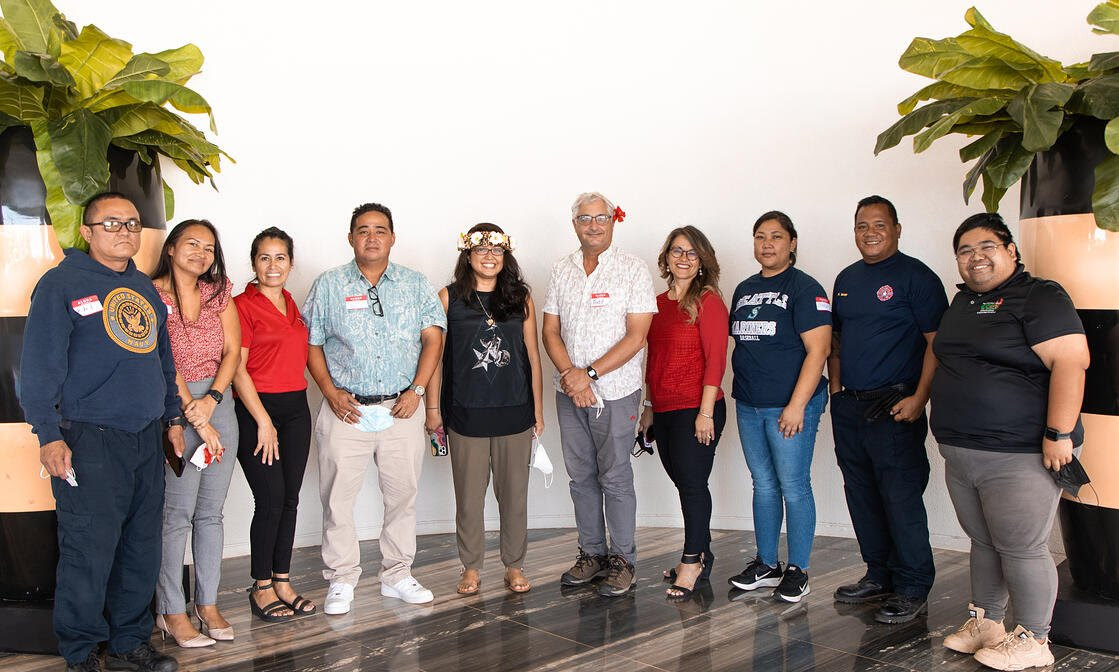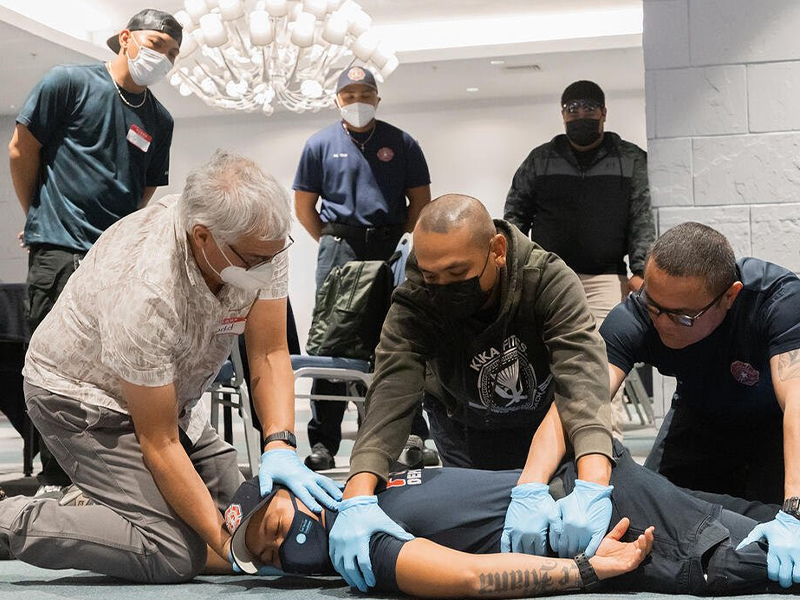Northern Marianas College’s Cooperative Research, Extension, and Education Services’ (CREES) Family, Community, and Youth Development program, in partnership with the University of Colorado School of Medicine, was recently awarded a $47,000 grant from the National Hazard Center to strengthen community resilience in the U.S. territories.
Through the leadership of principal investigator Dr. Todd Miner, the team will conduct a Disaster Response Advanced First Aid (DRAFA) Training which is a three day training program that prepares first responders and local citizens to identify and respond to disaster-caused common first aid, emergency, and serious medical situations.
“We are excited to partner with CREES and the Natural Hazards Center to strengthen disaster response in the CNMI,” said Todd Miner, the Director of Education and Senior Instructor for the University of Colorado School of Medicine – Department of Emergency Medicine, Wilderness Medicine Section.
“We know that immediate medical care after a disaster is key to saving lives and minimizing injuries, and that formal rescue can often be delayed,” Miner said. “Teaching Disaster Response Advanced First Aid to local citizens and first responders will help develop more resilient communities.”
In the span of six years, the CNMI has been impacted by two super typhoons and a global pandemic. The partnership with the University of Colorado School of Medicine will enhance existing response efforts during disasters. The training emphasizes preparation, prevention, assessment, and treatment of injuries and trauma. The program aims to improve resiliency in the CNMI as the islands recover from the devastation wrought by Super Typhoon Yutu in 2018, and to help prepare for future natural disasters.
This class is being offered as part of research studying the effectiveness of the DRAFA course in preparing community members to respond to disaster-caused medical emergencies and thus to determine its effectiveness in creating more resilient communities which will be instructed by the University of Colorado School of Medicine faculty. This training is designed for adult first responders, emergency medical services, disaster or health professionals, or students in EMS, nursing, or health-related fields.
“The FCYD team, through the leadership of Tayna Belyeu-Camacho and our partners at CNMI Homeland Security and DFEMS, continue to address community needs and build our CNMI capacity through this integrated research and training project,” said Patricia Coleman, CREES Interim Dean.
Two classes will be offered, the first class was conducted from January 24 to 26, and was aimed for first responders. The second session will be held from February 14 to 16, and is designed for the general public. The training, while covering a serious subject, is a mix of information, hands-on skills, and real-life practice which is open to anyone 18 years and older.
NMC CREES would like to thank their partners at the University of Colorado, CNMI Homeland Security and Emergency Management, and the CNMI Department of Fire and Emergency Medical Services (DFEMS) for helping make this training possible.
Northern Marianas College’s Cooperative Research, Extension, and Education Services provides research and technical advice in the fields of agriculture, aquaculture, natural resources, community and youth development, health, and nutrition that is locally sustainable, environmentally safe, and economically feasible, in order to enhance the well-being and improve the quality of life of the people living in the CNMI.
For more information about the DRAFA Training, contact NMC CREES Program Leader, Tayna Belyeu-Camacho, at tayna.belyeu-camacho@

This training was made possible through the partnership with the NMC-CREES, University of Colorado, CNMI Homeland Security and Emergency Management, and the CNMI Department of Fire and Emergency Medical Services (DFEMS).


